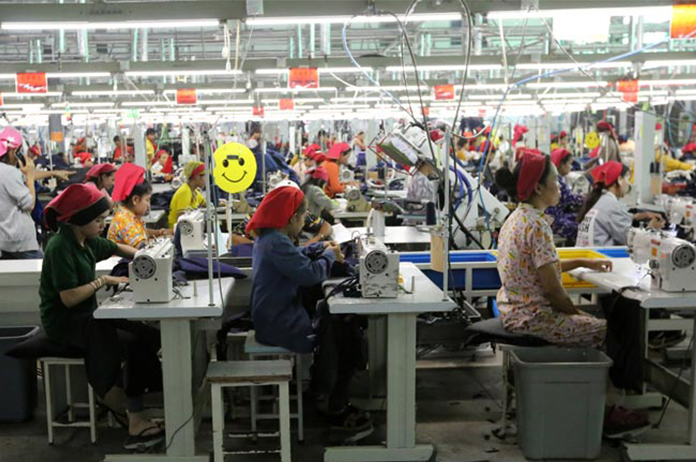World Bank Outlines Key Pathways for Cambodia's Economy
World Bank has released the key findings of its Cambodia Country Economic Memorandum (CEM) which looks at how the Kingdom navigates its way to an economic recovery and growth post-COVID-19.
Among the key economic pathways are increased productivity, diversifying exports and increasing domestic investments. The World Bank painted a recent economic picture of Cambodia saying "its growth rate, which averaged a robust 7.7 per cent between 1995 and 2019, plunged an estimated 10.1 percentage points to contract by 3.1 per cent in 2020 before resuming modest growth of 2.2 per cent in the year just ended."

During 2020 when the pandemic took hold, the growth fell by an estimated 10.1 per cent from its pre-pandemic average growth rate. World Bank said this was mainly down to a dependence on a narrow range of:
- Products (Five products have in recent years accounted for 80 per cent of total exports - including garments, footwear, rice and cassava).
- Markets (Two markets - European Union and the United States - have accounted for 69 per cent of merchandise exports)
- Factor inputs (Foreign capital accounted for 72 per cent of total capital investments in 2018.
The key areas for the government to address according to World Bank to boost the economy is in addressing the low and declining total factor productivity (TFP).
World Bank said specifically that three transformations were needed:
- Increasing productivity - Policy reform in investing in human capital through health and education; efficient resource allocation; easing the regulatory burden; and improving the performance of key services inputs.
- Diversification of exports - Upgrading in manufacturing GVCs, creating value addition in agriculture, and increasing competitiveness to export modern services.
- Improving domestic investment - Promoting FDI into productive and export sectors; promoting higher domestic savings rates; improving financial inclusion through greater access to savings institutions; supporting digital access through digital technologies; lowering the costs of savings accounts; and supporting financial sector stability and development more broadly.
You can read more on B2B Cambodia's recent article on the Cambodian Economic Outlook for 2022. A World Bank report released on January 12 2022, suggests Cambodia is projected to grow 4.5 per cent in 2022 and 5.5 per cent in 2023.